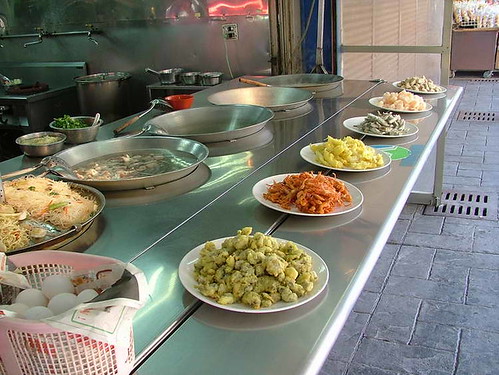Another long analysis saying Donald Trump is No Friend of Taiwan of the Trump calls and "everything is negotiable" comments from Trump, this one from longtime Taiwan expert Shelly Rigger. She reviews the history of The Call, and then the Trump Administration's appointments, and discusses Trump's trolling...
In less than 200 words, Trump managed to shake the foundations of U.S.-China relations and cast Taiwan’s future into doubt. Even for a devotee of short-form writing like master-tweeter Donald Trump, this was an achievement.It might at some point pay analysts to consider that the "one China" policy from the 1970s and US Taiwan policy dating formally from Apr 28, 1952, are not the same thing, even though they refer to some of the same entities.
The one China policy is a U.S. policy statement first articulated in the 1970s that has allowed the U.S. to pursue economic and political ties with Beijing while maintaining robust unofficial relations with Taipei. Every administration since Richard Nixon’s has affirmed the policy. Suggesting it might be open to revision cast the very basis – even the possibility – of economic and diplomatic interactions between the U.S. and China into serious doubt.
Note the words of Trump that Rigger gives in full:
I fully understand the One-China policy. But I don’t know why we have to be bound by a One-China policy unless we make a deal with China having to do with other things, including trade. I mean, look, we’re being hurt very badly by China with devaluation, with taxing us heavy at the borders when we don’t tax them, with building a massive fortress in the middle of the South China Sea, which they shouldn’t be doing. And, frankly, they’re not helping us at all with North Korea. You have North Korea, you have nuclear weapons, and China could solve that problem. And they’re not helping us at all.Trump is not threatening Taiwan's status in US policy. He is threatening China's status. Taiwan's status is never mentioned and is obviously not the focus of Trump's thoughts -- China is. Let's imagine what "not being bound" by the one China policy could mean. Because the US could switch to a two-China policy (ROC and PRC are both China), a no-China policy (neither PRC nor ROC is China, we don't recognize either), switch recognition to the ROC (wouldn't the KMT swoon over that) or something else. In fact at some point some of these policies existed in the past, and under all of them, the US worked to preserve Taiwan's status. Even when the US recognized the ROC as China it never recognized Taiwan as part of the ROC.
So, I don’t want China dictating to me. And this was a call put into me. I didn’t make the call. And it was a call, very short call, saying, “Congratulations, sir, on the victory.” It was a very nice call. Short. And why should some other nation be able to say, I can’t take a call? I think it would have been very disrespectful, to be honest with you, not taking it.
Under current understandings the US could delete the one China policy under which we recognize the PRC as China, without affecting Taiwan's status, which exists because of a different policy. But no major change was ever in play, as many of us wrote at the time.
In any case, as I argued before, it was all meaningless trolling related to Trump's trademarks and so on. Nobody actually ever formally proposed seriously revising US China policy.
As I noted in January, many people who derive wealth and status from the current US position on China were quite unsettled by The Call, since it signaled them that things might change, and threatened their wealth and status. It is amusing that at the moment it is ok to criticize Trump's team for not knowing anything about China, while remaining silent on the deep links so many China commentators have with Beijing's status and money flows. The limits of the discourse, ya know....
Nevertheless, Rigger is often insightful and this comment is dead on and has had me worried as well
Taiwan’s leaders should also worry about the Trump administration’s overall approach to foreign policy – an approach that seems to abandon America’s long-standing commitment to democracy around the world. Trump’s speeches rarely mention democracy or human rights, and his proposed budget slashes funding for all sorts of values-oriented programs. For Taiwan, this is a very bad sign. As China’s political, military, and economic power increase, making a utilitarian argument as to why the U.S. should support Taiwan gets harder, leaving democracy as Taiwan’s signal virtue. When Navarro used the phrase in his July 2016 article, describing Taiwan as a “beacon of democracy” was a tired cliché. Today, it feels like an important moral statement.Further down she says abandoning the TPP was a bad idea, but I don't see abandoning the TPP as a "devastating blow" since the TPP was a corporate giveaway that would have put Taiwan permanently under the sway of US corporate power, immiserating its people and further harming its economy and environment. Trump did all us who live on Taiwan a favor, even if you don't like the geopolitics of that decision.
Rigger notes that there will be an arms sale in April (more on that in a moment) and that the Administration might well upgrade official visits. She then concludes:
In sum, after a promising start and with the eager participation of many strong supporters of Taiwan in the transition, the Trump White House has managed to comprehensively botch its Taiwan policy, leaving Taiwan more vulnerable than ever to Beijing’s increasing pressure.LOL. We're barely 90 days in, and she's claiming that Taiwan policy is botched. Umm.... no. It's way too early. Note that Rigger provides no concrete examples of botched policy and its consequences (quick, point some out). In fact Taiwan's status got a tiny upgrade, with US marines to be posted to the new AIT office.
Chinese pressure on Taiwan existed prior to Trump's call, and will go on in the future, as the recent decision to block cosmetic imports from Taiwan over the 1992C shows. A trial balloon? A local official's overreach? New policy? Only time will tell.
Contrast Rigger's claims with the reality of the Obama team's Taiwan policy, which got high marks from the Establishment commentariat. Yes -- those same people who are worried that Trump might sell out Taiwan said nothing when Obama actually did so. The Obama Administration blocked an arms deal for Taiwan out of fear of China (Rigger does not mention the arms sale she lauds as a "bright spot" was blocked by Obama, one wonders what the commentariat would have said if Obama had dumped $1 billion in arms on Taiwan -- would have excused it if Obama did it, will hate it when Trump does). On Twitter Rupert Hammond-Chambers said it was probably because the US needed China's cooperation on the climate deal (as if either Beijing or the Trump Administration was going to adhere to that). Indeed, recall that the Bush Administration also downgraded its support for Taipei for China's cooperation in some transient political thing or other. Bonnie Glaser remarked:
But it is also possible that the Obama administration did not want to approve an arms sale in its final days because it didn't want to offend China and undermine the President's legacy with Beijing.For Obama's legacy Taiwan can't get arms it desperately needs (Trump at least got trademarks!). But of course the really worrisome thing is that Trump might sell out Taiwan.
Finally, KMT legislator Jason Hsu wrote up his trip to the US to visit the Trump Administration. It is interesting reading, his takeaways...
Despite all this, I came away with clear and crucial promises regarding stability in the Taiwan Strait: the United States will continue to uphold her moral and legal responsibility toward Taiwan. She will continue to assist in our self-defense. In terms of upholding the Taiwan Relations Act and the Six Assurances, American good faith will endure.Kudos to Hsu for not only understanding the difference between the one China policy and the one China principle, but also for not conflating them in an attempt to mislead the reader as KMTers so often do.
President Trump, despite immense pressure from China, will still adhere to the One China Policy, the bedrock of strait relations. But China will also continue to demand adherence to the One China Principle. The danger then, lies in how the still-adapting Trump and an uncompromising China interpret these two differing frameworks, it has the potential to throw off the delicate balance of power in the Straits.
.....
Taiwan and the United States share more than thirty years of stalwart friendship. The Congressional Taiwan Caucus remains the second largest caucus in the United States Congress with more than 120 members. Despite the fragility of international relations, we remain unwavering in this partnership; we still believe in America’s good intent. Now is a time of uncertainty but it is also the time for opportunity and recognition. For years Taiwan has been America’s most loyal ally in the region, we are a young but flourishing democracy, an open and robust society with liberal values that mirror the U.S. We share the same resolve in promoting democratic ideals while ensuring peace, in fostering security while defending freedom, and in furthering trade and prosperity for all.
_______________________
[Taiwan] Don't miss the comments below! And check out my blog and its sidebars for events, links to previous posts and picture posts, and scores of links to other Taiwan blogs and forums!
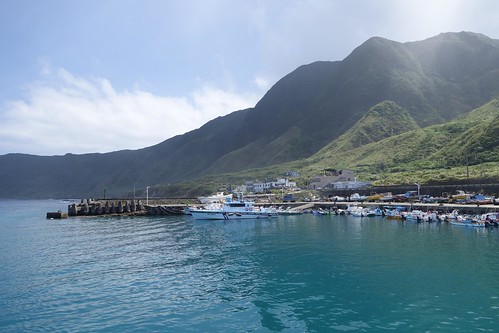
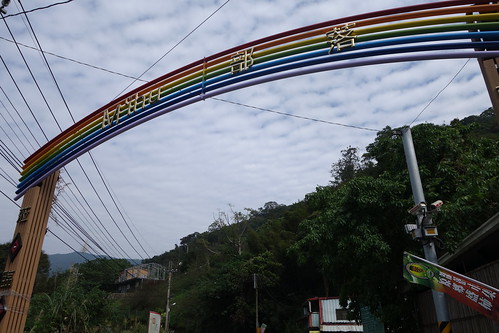
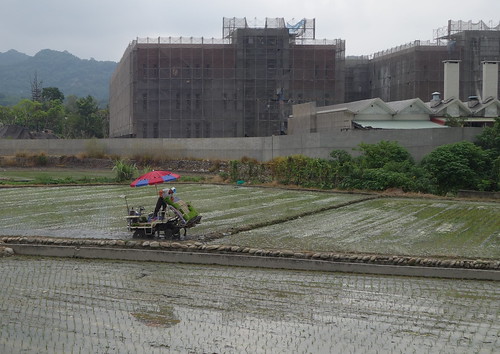
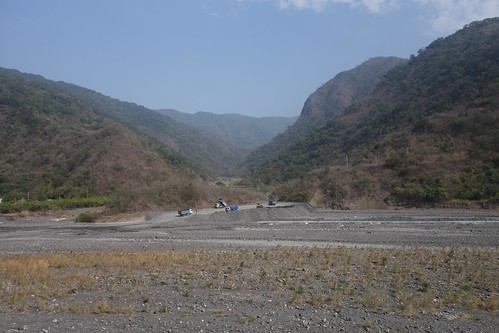
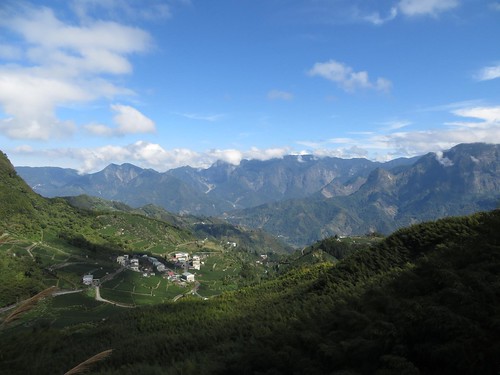


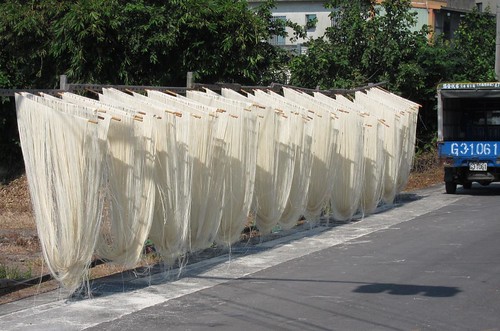
 The US House passed legislation that is important for Taiwan (
The US House passed legislation that is important for Taiwan (